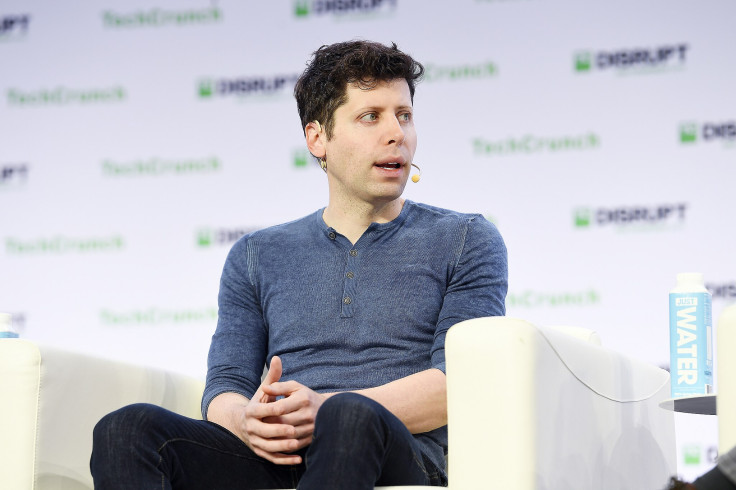OpenAI boss Sam Altman eases fears about AI destroying job market
OpenAI CEO Sam Altman says ChatGPT can help journalists come up with new ideas.

OpenAI CEO Sam Altman is trying to calm people's fears of potentially losing their jobs due to the skyrocketing popularity of AI. According to the boss of the company behind the widely popular ChatGPT, the company's technology will not destroy the job market.
Contrary to some people's beliefs, Altman said AI does not pose a threat to different sectors of the workforce. For instance, some graphic designers believe Adobe's recently introduced AI art generator Adobe Firefly could replace them. However, he claims that AI tools will not take over job markets through automation.
"This idea that AI is going to progress to a point where humans don't have any work to do or don't have any purpose has never resonated with me," Altman said in Paris. The top executive made this statement during his global tour to charm powerbrokers and national leaders. Moreover, he claims AI will not destroy the media industry although some outlets are now using AI to generate stories.
visiting toronto, DC, rio, lagos, madrid, brussels, munich, london, paris, tel aviv, dubai, new delhi, singapore, jakarta, seoul, tokyo, melbourne.
— Sam Altman (@sama) March 29, 2023
also hoping to give talks in some of the cities and meet with policymakers.
In fact, ChatGPT-like tools have recently been used to generate content for some fake news websites. Instead, Altman believes ChatGPT should help journalists to research and create new ideas. Last year, ChatGPT showed off its impressive ability to generate poems, essays, and entire conversations even from brief prompts.
Is AI capable of destroying the job market?
To recap, Microsoft invested billions of dollars to support the Artificial Intelligence company. The American tech firm now uses OpenAI's products to compete with other tech behemoths including Google. The search engine giant, on the other hand, has introduced its own AI tool called Bard, which has also been subject to some controversies lately.
Done safely and securely, AI has the potential to be transformational and grow the economy.
— Rishi Sunak (@RishiSunak) May 24, 2023
This evening I met with @sama, @demishassabis and @AnthropicAI's Dario Amodei to discuss how the UK can provide international leadership on AI. pic.twitter.com/8x8NfCbCbG
According to a report by Gadgets 360, Altman has been receiving euphoric welcomes from leaders worldwide. Much to his chagrin, the 38-year-old American entrepreneur ended up annoying the EU earlier this week. Notably, Altman recently hinted that OpenAI could leave the European Union citing strict regulation.
very productive week of conversations in europe about how to best regulate AI! we are excited to continue to operate here and of course have no plans to leave.
— Sam Altman (@sama) May 26, 2023
Making a U-turn last week, Altman said the firm has no plan to leave the EU. Meanwhile, the EU is gearing up to make its first set of rules to scrutinise AI, according to a report by Mint. Now, the top executive claims OpenAI has been planning to open an office in Europe in the coming days.
OpenAI steals the spotlight
Altman's popularity can be attributed to the success of ChatGPT. While he thinks reflecting on this will feel very special in the coming years, Altman admitted that it is "quite exhausting." In fact, he hopes that his "life calms down." The company was formed back in 2015 with investors including Altman and Twitter CEO Elon Musk, who left OpenAI in 2018.
According to the 51-year-old business magnate, he not only suggested the name OpenAI but also invested $100 million in the company. Furthermore, he accused OpenAI of betraying him by turning itself from a non-profit to a profit-making firm in 2018. Musk also claims that OpenAI is effectively run by Microsoft.
Denying these allegations, Altman states there are more important things than what Musk is going on about. For example, he wants to focus more on the company's mission, which he says was to "maximise the benefits" to society of AI and AGI (Artificial General Intelligence). However, Altman says the definition of AGI is still "fuzzy."
Nevertheless, he defines AGI as a phase when machines will be capable of making notable scientific breakthroughs. "For me, if you can go figure out the fundamental theory of physics and answer it all, I'll call you AGI," he said. Still, his company has been criticised for not revealing the sources it uses to train its AI models.
Some critics say users have the right to know who is answering their questions. Aside from this, they argue that users should know whether those replies are based on materials from offensive or racist websites. However, Altman claims critics only wanted to know whether the AI tools themselves were racist. He added that the latest model, GPT-4 is "surprisingly non-biased."
© Copyright IBTimes 2025. All rights reserved.






















